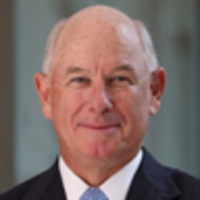The 2012 election in many ways reaffirmed the existing political divide over domestic policy and the role of government, but it also produced a surprising consensus on foreign policy. Campaign differences were more about style than substance. What the American people heard and supported was: American leadership matters, but must be employed with greater care, with partners and at a sustainable cost.

Over the past half-century, second terms have been characterized by domestic crises at home—Watergate, Iran-Contra, Monica and Katrina—and ambition abroad—China, Russia, Middle East peace and Iraq. If President Obama has, well, a foreign policy mandate, what are the challenges and priorities as he approaches his second term and the White House shifts it focus from reelection to legacy?
Ironically, the first foreign policy priority is domestic: achieve a balanced fiscal agreement with Congress by the end of the year without falling off the cliff. Notwithstanding all the campaign rhetoric about leading from the front or behind, nothing will impact international perceptions of American power more than what happens over the next seven weeks. Obviously, actions taken here will influence ongoing efforts across the Atlantic to stabilize the Eurozone—and visa versa.
The second is forming a cohesive national security team for the second term. From a foreign policy standpoint, the second Clinton and Bush 43 administrations outperformed the first. With Hillary Clinton, Leon Panetta, Tim Geithner, David Petraeus (unexpectedly) and perhaps others moving on or moving around, President Obama has the opposite problem, rebuilding a national security team that is as effective in the second term as it was in the first.
The president’s best opportunity to make history regards Iran. He has consistently said there is sufficient time to resolve questions regarding Iran’s nuclear program through diplomacy rather than military action. He will test that proposition quickly. Expect a new diplomatic initiative before the end of the year. The basics of a grand bargain exist—the Iranian right to low-grade enrichment for civilian purposes in exchange for rigorous inspections to prevent a weapons breakout—but the there is a relatively narrow negotiating window over the next six months between upcoming elections in Israel (January) and Iran (June).
Israeli Prime Minister Benjamin Netanyahu’s strained relationship with a re-elected President Obama is a potential political liability. Having spent much of this year challenging the president over red lines and a zone of impunity, Netanyahu will likely give Obama significant latitude to see if negotiations bear fruit.
Ayatollah Ali Khamenei has to be concerned about growing unrest over the devastating economic impact of international sanctions and the threat it poses to the perceived legitimacy of the Iranian theocracy. In the past, Iran has sought to cut a deal when backed against the wall.
In contrast, there does not appear to be an immediate solution to Syria. There is no political support for outside military intervention either in this country or in the Middle East. Professor Marc Lynch of The George Washington University told a World Affairs Council national conference on Friday in Washington that the struggle has so divided Syria that Assad’s departure might not by itself end the civil war.
If true, the administration’s policy at this point is effectively containment, keeping the violence from affecting from destabilizing the rest of the neighborhood while waiting for a diplomatic opening to present itself. The formation of a new umbrella organization this weekend in Qatar that unites the opposition both inside and outside Syria helps, but is a long way from being a viable alternative to the Assad regime.
The so-called Arab Awakening will represent an unpredictable challenge throughout Obama’s second term. Having encouraged the ongoing transitions in Tunisia, Egypt and Yemen, and militarily intervened in Libya, the administration should continue to do what it can to keep them moving in a positive direction while recognizing it cannot dictate outcomes in any of these countries. Building a working relationship with President Mohamed Morsi of Egypt, whom Obama characterized before the election as “neither friend nor foe,” can have region-wide implications.
The president’s national security legacy may hinge on the endgame in Afghanistan. Already committed to ending the war in 2014, over the next two years, the administration will likely negotiate a status of forces agreement that allows some U.S. troops to remain in Afghanistan beyond that date. There is already a debate within the White House over the size and focus of that follow-on force, but it is increasingly clear the weak and corrupt Afghan government will need substantial help well into the future to protect its own security.
That said, the administration recognized long ago before it located Osama bin Laden that Pakistan is far more important to U.S. security than Afghanistan. In its first two years, it worked hard to build a strategic partnership with Pakistan, but the effort stalled with the fallout from the bin Laden raid and other setbacks. In its second term, Obama needs to shift back from managing the crises of the moment to convincing Pakistan (and the U.S. Congress) to invest in a long-term relationship. It also needs to be more transparent about the ongoing drone campaign that, while necessary, undercuts U.S.-Pakistan relations.
There is also the vital and complex relationship with China during a time of turbulence and transition. A hallmark of the first term was reengagement in Asia, but China sees the so-called pivot as a threat to its regional interests. Recently, the administration was sufficiently concerned about growing regional tensions over competing territorial rights that it sent four former high-level officials—Steve Hadley, Rich Armitage, Jim Steinberg and Joe Nye—to Tokyo and Beijing for urgent consultations. Reversing the drift in U.S.-China relations will require developing a better relationship with incoming President Li Jinping than Obama had with outgoing leader Hu Jintao.
Second terms are about history, but given this long list of complex challenges, as the saying goes, be careful what you wish for.






